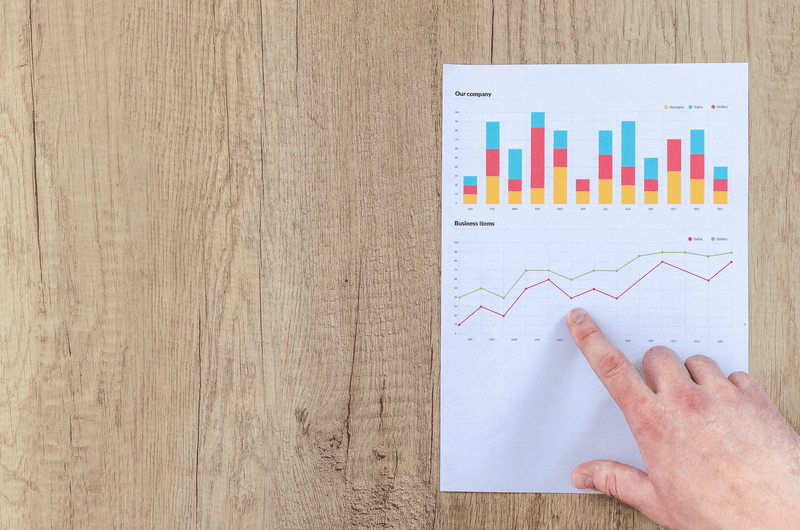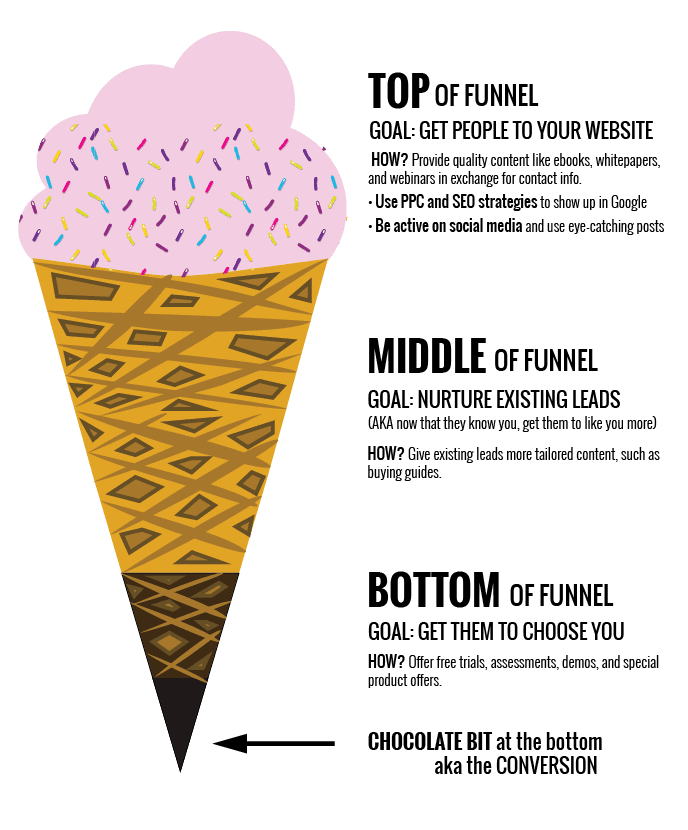
In today’s world marketing has become more personalized and targeted. Brands that are using data to personalize marketing campaigns are seeing the results. The more saturated data you have, the more relevant your marketing becomes to the audience.

According to Salesforce statistics, high-performing companies utilize data for targeting and segmentation 51% more than underperforming companies.
With 7 in 10 online adults purchasing products online each month, customers don’t just like personalized marketing, they value it.
In this article, we’ll guide you through the benefits of using data in personalized marketing campaigns, the ways to implement it, and many more interesting FAQs. Keep reading!
One can say personalized marketing is one-to-one marketing. Personalized marketing is the implementation of a strategy in which businesses utilize the database to analyze, and automate the marketing campaign for offering individualized content to recipients.
The goal of personalized marketing is to really engage customers or prospects on a one-to-one basis by providing them the solution to the problems they are facing.
Sounds impossible, right?
Imagine reaching out to every individual out there in the market and providing each of them with a unique solution … how strenuous that would be!

To help break down personalized marketing and shed more light on the concept, we’ll start with the benefits of a personalized marketing campaign.
Why waste time reading the whole article if you are not well aware of the benefits of personalized marketing?
Imagine you are on a first date and the person next to you starts talking about topics you can’t relate to at all.
If you really want to make it work, how many more chances are you willing to give? Maybe, two to three dates at best?
For marketers, the brand’s very first encounter with an individual is similar to a first date. If you manage to spark up a lively conversation with them, chances are you’ll be allowed for more and have a good chance of forming a connection.
Once the connection is formed and you manage to reach that prospective customer with the right message at the right time, the likelihood of conversion increases and they eventually make a purchase.
A personalized experience has the ability to make someone feel valued. And when someone feels valued, they share it with others. A trending example of such a marketing campaign is an individual coupon code. Brands reach out to influencers with unique coupon codes resembling their names, for example ‘nititaylor06’. Just not the influencers themselves, the followers also start feeling connected with the campaign instantly.
Customers want marketing messages and advertising that is suited to their specific interests and requirements. An Adobe research says that 42% of consumers get annoyed when the content is not personalized.
The same report revealed that 67% of consumers prefer brands to automatically adjust content based on current context. Customer retention refers to how loyal a customer is and whether or not they will continue to purchase from a company.
If a company's marketing content and quality make a consumer pleased, that individual is more likely to buy from them again.
Consumers connect with companies across a variety of channels, such as email, social media, mobile, and so on, sometimes all in the same day. Personalized marketing is all about finding out where your customers are and talking to them on those channels.
Thus, you are always on their mind keeping your presence consistent across various channels.
By now you’ve already known about the benefits of personalized marketing. Some of you may think why your personalized marketing campaign is not yielding as many benefits as mentioned above.
As Ardath Albee, the CEO of Marketing Interactions says, “Personalization is like seasoning. A little makes a big difference. In cooking, a pinch of the right spice can make the meal, while a pinch of the wrong spice can spell disaster.”
The main challenge in the personalized marketing campaign is the proper way of collecting data and using them.
Would you like the feeling of being stalked 24/7? That’s creepy, right?
Consumers said in an Accenture survey, that, the creepiest form of personalized marketing is texting or sending a notification when someone walked past a brand’s store and displaying social media ads for products they have browsed on a particular brand’s website.
Here are the major challenges of personalizing marketing campaigns.
Integration of all the wings of your business and being able to export data from every source is the main challenge marketers face while implementing a personalized marketing campaign.
Your company’s database is your biggest asset. Hence, the marketing team single-handedly can’t empower it. For example, sending the same advertisement twice to a customer from both sales and marketing teams leaves a negative impression about your team alignments.
In an Experian Study, 78% of brands said they struggle with “data debt” or not having enough quick data about their customers to launch relevant personalization tactics.
The General Data Protection Regulation in the EU, as well as other regulations in various countries, regulate the data privacy of their consumers. These regulations make it challenging for companies to collect data and target their marketing campaigns.
When customers do not share information with a company, finding other means to personalize content for them gets difficult.
Companies often use anonymous data, such as the location attached to a viewer’s IP address, to target viewers by location. eConsultancy report suggests that 42% of surveyed marketers admitted using anonymous data for a personalized marketing campaign.
This type of personalization unnerves the consumers. Thus, not informing customers about what data you will use and how you are planning to use is going to backfire your personalized marketing campaign.
All these challenges we mentioned above revolves around a common keyword, and that is data. If personalization is seasoning then data is the pinch of the right spice which can make your food delish.
Data can be a game-changer when it comes to reaching the right prospects from the defined target group. The days of random blasting and generalization are long gone. With today's marketing efforts, you must be precise, relevant, and strategic.
Before we start with the use of data to personalize the marketing campaigns, let us get across the ways to collect data.
With so many people floating in the cloud, you need to talk to many people. Each with unique problems looking for a unique solution. Know your target audience to figure out in which period of customer lifecycle they are in.
To collect data from your audience you have to know their preferences first. Thus, it is essential to shape ways of collecting data around your audience's needs and preferences.
Segmentation is basic but you need to reevaluate the way you are currently segmenting your database. For a more robust database, experiment with granular points such as:
Allowing customers and prospects to express their own experiences can make the data collection process smooth.
There are hundreds of ways to get creative about this. You can take a quick survey and ask a segment of users certain questions relevant to their phase in the customer cycle.
A customer service chatbot also comes in handy to collect customer feedback data without expending too much time or manpower.
Data acquired for marketing purposes today extends much beyond the usual name, organization, and title.
Website activity is the most significant form of marketing data used for personalization campaigns, according to more than half (55%) of marketing experts. For 47 percent of the marketers surveyed, transaction activity is at the top of their list of critical forms of data.
Data collection, segmentation, integration with other teams, and data storage everything seem massive work altogether. Fortunately, developments in the SaaS industry have brought to you some tools to do the heavy lifting.
You can choose from a wide range of database providers and use the curated prospect database to streamline and scale your personalized marketing campaigns.
To use the obtained data for the personalized marketing campaign, you may consider the following pattern.
Use the data to map out the specific interests and needs of each persona. Create content that can cater to their interests.
Identify at what stage of buyers’ life cycle your recipients are. Think about how you can trigger their interest and provide the most useful content for nurturing them down the conversion funnel.
Email is an obvious example of a personalized marketing campaign using data. In an Evergage report, 78% of marketers say Email is the most personalized channel use for marketing.
Use data to improve your customer’s experience with your company. For example, if your website’s loading speed is disrupting the customer’s experience, you can immediately work on it.
If a customer had a poor shopping experience, reach out to them personally and apologize for that. 45% of consumers find it the coolest personalized tactic.
When you meet with your consumers at certain touchpoints, you're more likely to lose the interaction, such as signup drop-off and cart abandonment.
Does this mean you’ve lost the relationship? Not necessarily.
You can identify these users, determine the cause of the connection failure, and provide appropriate solutions to them using data.
Personalization can build brand loyalty and drive revenue over time. If you communicate in a way your audience understands better, you will have people who genuinely know your brand. You can use this to leverage the copy, images, videos, and offers.
You can also use your customer’s loyalty and their experience for social proof. What better way than spreading your brand’s name with words of mouth?
Use the obtained data to compare the results of your marketing campaign. If you are not using any kind of content personalization engine, we recommend you to use one.

If you're already using a customization platform, make sure to compare it to any competing solution that claims to provide additional value.
Data collection, analytical skills, and the development of customizable websites are all useful to a business, but they are most effective when they are completely integrated.
Customers should be able to receive appropriate content recommendations from your customization system at the right time. You should run an A/B test to validate the performance of your system vs. control.
When we talk about the topic of personalized marketing campaigns, without a second thought Amazon and Netflix cross our minds. No doubt, their successes statistics of personalized marketing campaign is exemplary.
But, here is the big difference between a B2B and B2C marketing campaign. B2C marketers have a big advantage of customer data.
The brighter side is that in B2B marketing, a small amount of data combined with relevant insights can go a long way.
For B2B marketers the following infographic explains the type of data they’ll need to excel at personalized marketing campaigns.

Start with sales prospecting to get the best result out of any personalized marketing campaign.
Get rid of all-size-fits-all personalized marketing campaigns. Create successful and meaningful marketing personalization based on a thorough understanding of your targeted audience and the capacity to reach and persuade the most important ones.
Want to get qualified leads in no time? Get a OneMoreLead demo today!